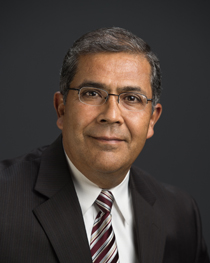Dr. Alfonso Ortega to Deliver Keynote Lecture at International Conference
Villanova University’s Dr. Alfonso Ortega, Associate Vice President for Research and Graduate Programs and James R. Birle Professor of Energy Technology, has been invited to deliver a keynote lecture at the 24th International Symposium on Transport Phenomena (ISTP-24) in November. According to the event website, the conference will provide “a forum for researchers, scientists and engineers from all over the world to exchange information, to present new information and to engage in discussion on the future directions and priorities in the areas of transport phenomena.” Transport phenomena includes the flow of fluid, heat and mass transfer, multiphase flow, micro and nano problems, thermal management of electric and electronic systems, energy conversion and saving technologies both on the ground and in space. Hosted by Tokyo University of Science, Yamaguchi, Japan, Dr. Ortega is the only symposium plenary speaker from the United States. He will address the topic of “Uncovering Fundamental Issues in Thermal Management Applications: A Closer Examination of Impinging Synthetic Jets and Droplet Sprays for Cooling Electronics.”
Dr. Ortega is director of Villanova’s Laboratory for Advanced Thermal and Fluid Systems, which he founded in 2005. In 2011, with a grant from the National Science Foundation (NSF), Villanova University and four other university partners established the Center for Energy Smart Electronic Systems (ES2), an NSF Industry/University Cooperative Research Center. Research is being conducted at each university site to develop methodologies for the efficient operation of electronic systems, including data centers, by controlling resources and managing workloads to achieve optimal energy consumption. With expertise in the science and design of thermal systems, Dr. Ortega’s primary areas of focus include thermal management in electronic systems, heat transfer in complex flows, experimental measurements in the thermal sciences and thermal management in energy systems.

